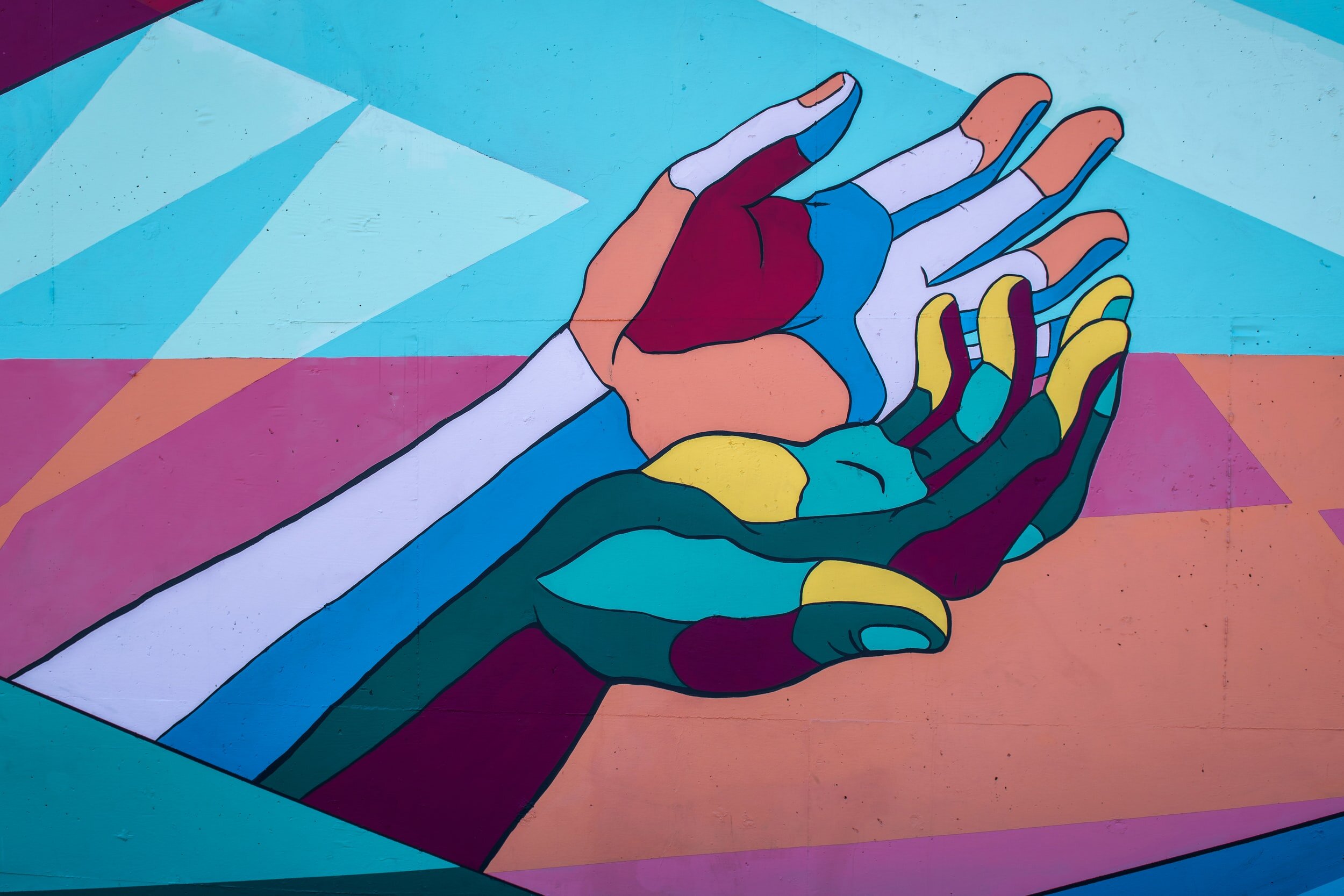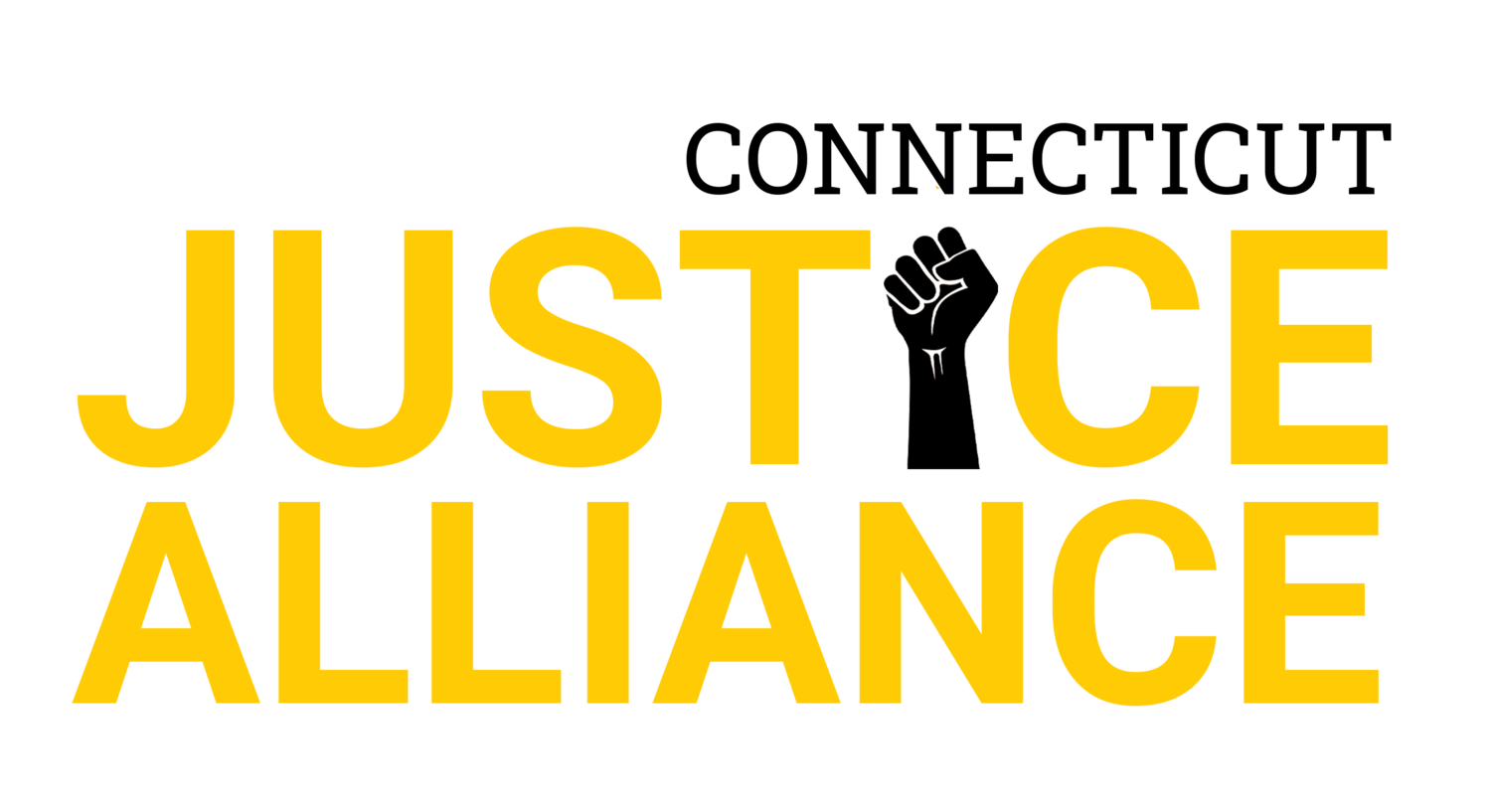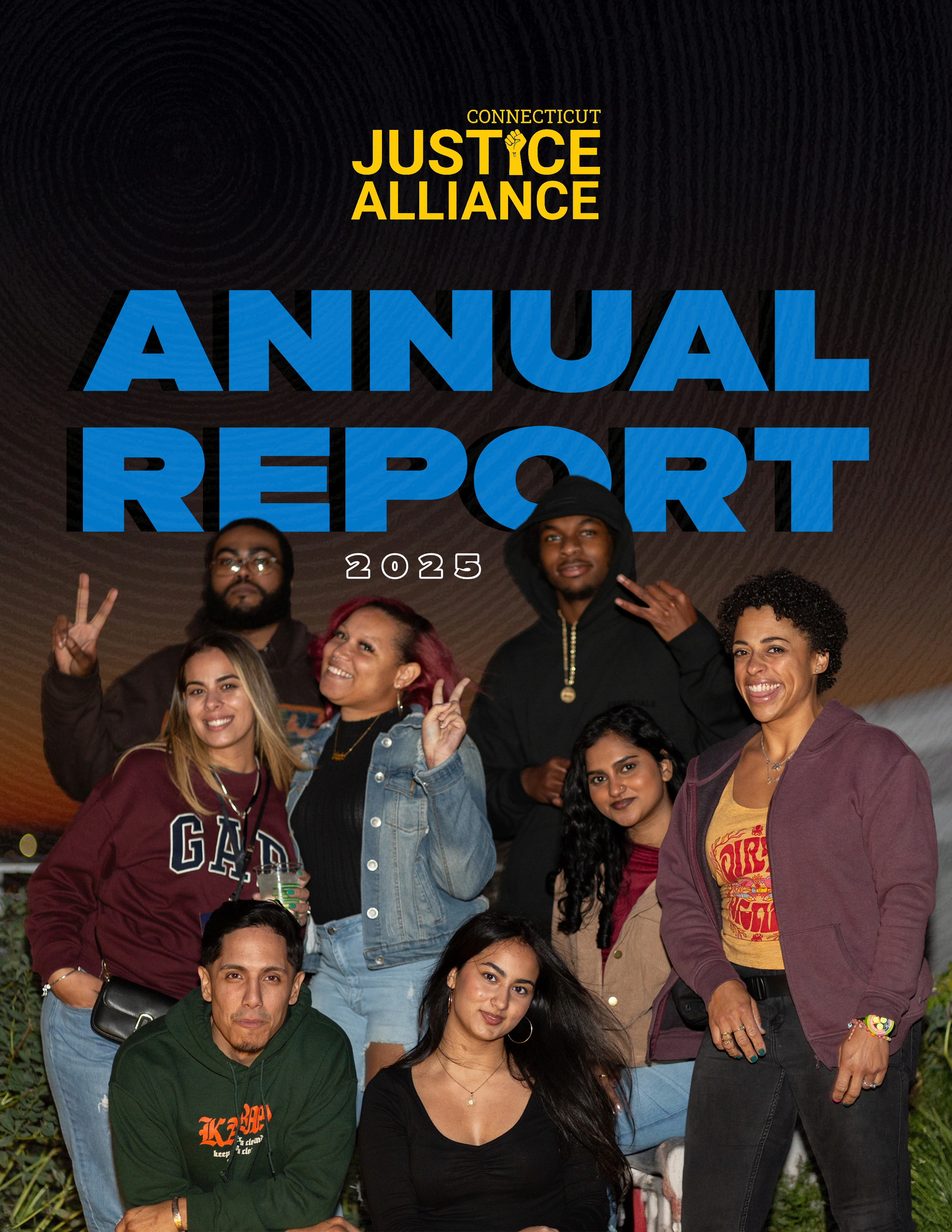
Reports
CTJA releases an annual report each year.
The 2025 Annual Report highlights a year of advocacy, significant policy wins, and ongoing challenges facing children in Connecticut’s legal system.
The report documents the passage of legislation restricting the use of handcuffs on children, CTJA’s work alongside young people inside Manson Youth Institution, advocacy for community-based alternatives to arrest and detention, and the voices of our Justice Advisors shaping policy through lived experience. It also compiles key data released in 2025 that shows both progress and growing strain within state systems that interact with kids.
"We are actively working to dismantle the chains of the carceral system, which continues to oppress vulnerable communities, fueled by systemic inequities. It is our duty to fight for our freedom. It is our duty to win. We will love and support each other. We have nothing to lose but our chains."
Simar Kaur Soni, Justice Advisor, Connecticut Justice Alliance, writes in the concluding letter of the report.
CTJA shares it’s first annual 2023- 2024 State of Youth Justice Report, a review of legislative wins and lessons learned in the 2023 Session and a set of goals for the 2024 Session.

Ending the Criminalization of Youth
This report measures systems of oppression on youth and policy reactions as it evolves.
Revisited: June 2022
Ending the Criminalization of Youth: Address the Root
In our 2022 report, “Ending the Criminalization of Youth: Address the Root,” we continue to dig deep and investigate the need for equal opportunities, housing security, economic security, hope, systemic accountability, positive role models/credible messengers, and the need to address trauma existed long before the pandemic.
People who are closest to the problem, are closest to the solution. People who are impacted by the systems of oppression must have a seat at the tables where decisions are being made. CTJA promises to continue to hold Vision Sessions so we hear directly from those most impacted about what works best for them and we hope to reach those with closed minds and show them that there is a better way to care for and invest in our youth.
June 2020
Ending the Criminalization of Youth: One Investment at a Time
Our 2020 report, “Ending the Criminalization of Youth: One Investment at a Time” develops legislative asks and calls to action for policymakers and community members to reduce the number of youth entering the juvenile and adult justice systems.
This report pulled together the many conversations we’ve had with system-impacted youth and community members and their recommendations for creating equitable system reform. Impacted youth, families, and community members know what they need to thrive. Decision-makers need to listen.





